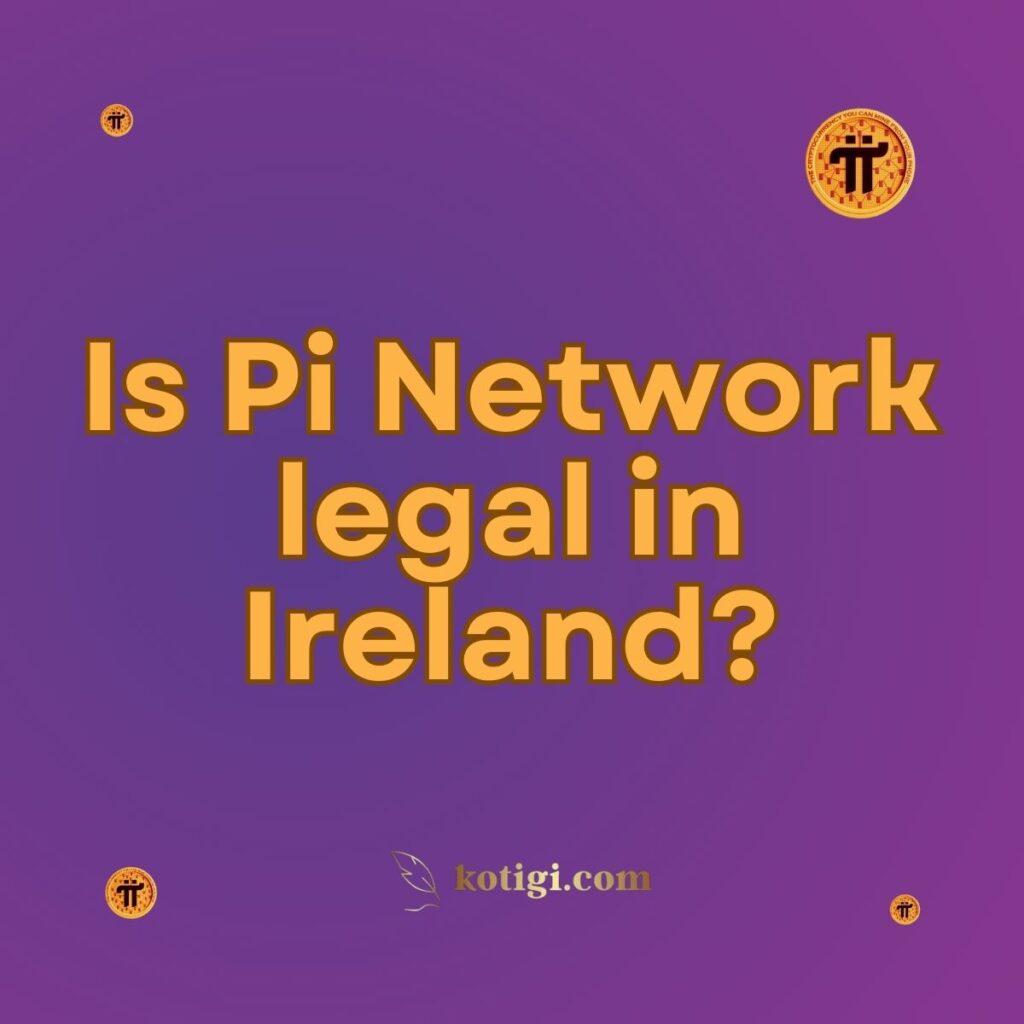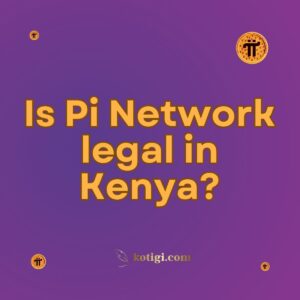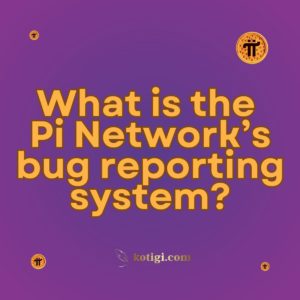
Is Pi Network legal in Ireland?
Pi Network’s legal status in Ireland is currently unregulated, as it falls under the category of cryptocurrencies, which are generally not subject to specific laws in the country. However, users should exercise caution and be aware of global regulatory trends surrounding digital currencies. While Ireland encourages the development of blockchain technology, users should be mindful of existing financial laws and evolving regulations concerning digital assets.
Introduction
Ireland, known for its tech-forward approach, has become a hub for cryptocurrency innovation. Pi Network, a mobile-based cryptocurrency, has garnered attention in the country. The question of its legality often arises, particularly as the global regulatory landscape around cryptocurrencies continues to evolve.
This article explores the current legal status of Pi Network in Ireland, the government’s approach to cryptocurrency regulation, and key considerations for users engaging with Pi Network in the country.
Cryptocurrency Regulation in Ireland
Ireland’s Stance on Cryptocurrencies
Ireland does not currently have specific laws governing cryptocurrencies like Pi Network, but it allows their use. Cryptocurrencies are not illegal in the country, and individuals and businesses can freely engage with them. However, the Central Bank of Ireland has issued general warnings about the risks associated with digital currencies, including volatility, security issues, and the potential for fraud.
Pi Network, like other cryptocurrencies, operates in this unregulated space. This means there is little legal oversight or protection for users engaging with the platform, which can pose risks for those unfamiliar with how digital currencies work.
European Union Regulations and Ireland
As a member of the European Union (EU), Ireland is influenced by EU-wide regulations concerning cryptocurrencies. The Fifth Anti-Money Laundering Directive (5AMLD), which came into effect in January 2020, requires crypto exchanges and wallet providers to comply with certain anti-money laundering (AML) and counter-terrorist financing (CTF) regulations. While Pi Network itself is not yet a tradable currency, these regulations could impact its future operations once Pi coins become exchangeable.
In the future, Ireland will likely adopt further regulations under the upcoming Markets in Crypto-Assets (MiCA) framework, which aims to regulate digital assets and provide more consumer protections. For now, Pi Network users in Ireland operate in a legal gray area, but should be prepared for possible regulatory changes as the EU finalizes its cryptocurrency legislation.
Pi Network’s Role in Ireland’s Financial System
Pi Network’s Mobile Mining Model
Pi Network’s mobile mining model allows users to mine Pi coins without the need for energy-intensive hardware. This unique approach has attracted many users in Ireland, especially those who are new to cryptocurrency. Since Pi coins are not yet tradable, the platform avoids many of the regulatory issues associated with cryptocurrency exchanges.
For now, Pi Network’s mining model has not raised major legal concerns in Ireland, but this may change as the platform transitions to its open mainnet and Pi coins become tradeable. At that point, Pi Network could face new scrutiny from regulators, particularly if users begin exchanging Pi coins for traditional currency.
Legal Considerations for Users
While Pi Network is legal in Ireland, users should be cautious about its unregulated nature. The Central Bank of Ireland has consistently warned consumers about the risks of engaging with unregulated digital currencies, particularly with respect to potential scams, loss of funds, or security vulnerabilities.
Users should be aware that while they can currently engage with Pi Network freely, the lack of clear regulation means there is little protection in case of disputes or platform-related issues. Staying informed about potential regulatory changes is important, especially as Pi Network’s ecosystem continues to develop.
Legal Risks and Regulatory Developments
Lack of Specific Consumer Protections
Since Pi Network operates in an unregulated market, users in Ireland do not have the same consumer protections that exist for traditional financial services. This lack of oversight means that if a user experiences issues with Pi Network, such as losing access to their Pi coins or facing fraud, there may be no legal recourse.
In addition, Pi Network’s unique model of mining coins through mobile devices may raise concerns about data privacy and security, especially as personal information is often required to verify users on the platform. Irish users should exercise caution and ensure they understand the platform’s security measures.
Potential Future Regulations
As the Pi Network evolves and its coins become tradeable, Irish regulators may take a closer look at its operations. MiCA, the EU’s upcoming framework for regulating cryptocurrencies, could introduce new rules that Pi Network must follow, particularly around consumer protection and anti-money laundering.
For now, Pi Network users in Ireland should be mindful of the evolving regulatory environment. While no laws currently restrict their participation, the future legal landscape for cryptocurrencies is likely to change, and this could impact how Pi Network operates within Ireland.
Regional and Global Trends Impacting Ireland
Cryptocurrency Regulation in Europe
Across Europe, different countries have taken varying approaches to regulating cryptocurrencies. Germany and France have implemented more comprehensive cryptocurrency regulations, while countries like Ireland and the UK have taken a more laissez-faire approach. Ireland tends to follow the EU’s lead on digital asset regulation, so Pi Network users should keep an eye on developments at the EU level.
The MiCA framework, expected to be fully implemented by 2024, will likely introduce a more standardized approach to cryptocurrency regulation across the EU, including Ireland. This could mean greater scrutiny for platforms like Pi Network once their coins become tradeable.
Global Trends in Cryptocurrency Regulation
Globally, countries are increasingly moving toward regulating cryptocurrencies. The United States is developing clearer frameworks, while China has taken a hardline stance by banning cryptocurrency transactions altogether. As countries around the world grapple with how to regulate digital currencies, Pi Network may face additional challenges in complying with various international regulations, especially if it seeks to expand its user base beyond unregulated markets.
For Pi Network users in Ireland, it’s important to stay informed about both regional and global regulatory trends, as these developments will likely shape how the platform operates in the future.
The Future of Pi Network in Ireland
Potential Regulatory Challenges
As Pi Network transitions to its mainnet and users begin trading Pi coins, the platform could face increased regulatory scrutiny in Ireland. While it is currently legal to participate in Pi Network, future regulations—both at the national and EU levels—may impose new requirements on cryptocurrency platforms.
For now, Pi Network users in Ireland can continue using the platform without legal concerns, but they should be prepared for possible changes in the regulatory environment, particularly as the cryptocurrency market matures and becomes more mainstream.
Importance of Staying Updated
Given the rapidly changing regulatory landscape, it is important for Pi Network users in Ireland to stay informed about both local and EU-wide developments. As MiCA and other regulatory frameworks are implemented, Pi Network may be subject to new rules that could affect how users interact with the platform.
By staying updated on these trends, users can better navigate any potential legal challenges and ensure they remain compliant with future laws.
Caution for Pi Network Users in Ireland
Unregulated Market Risks
Since Pi Network operates in an unregulated environment, Irish users should be cautious. The lack of consumer protections means that participants have limited legal recourse in case of disputes, fraud, or other issues related to the platform.
For now, Irish users can engage with Pi Network without restrictions, but they should be mindful of the potential risks that come with participating in an unregulated digital currency platform.
Monitoring Legal Developments
Pi Network users in Ireland should pay close attention to any legal developments at both the local and EU levels. As MiCA and other regulatory frameworks are introduced, Pi Network could face new legal requirements. By staying informed, users can ensure they remain compliant and avoid potential legal pitfalls.
Conclusion
Pi Network is currently legal in Ireland, but it operates in an unregulated market. While Irish users can participate in the platform without legal concerns, they should be aware of the potential risks associated with the lack of regulation. As Pi Network evolves and its coins become tradable, users should stay informed about regulatory changes both locally and at the EU level.
For now, Pi Network users in Ireland should engage with the platform cautiously, keeping an eye on future regulations that could impact their participation.
Key Takeaways
- No Specific Cryptocurrency Laws: Ireland does not have specific laws regulating Pi Network, but users can participate freely for now.
- EU Regulations: The EU’s upcoming MiCA framework may introduce new rules that Pi Network must follow in the future.
- Lack of Consumer Protections: Pi Network operates in an unregulated market, meaning Irish users have limited legal protection.
- Government Warnings: The Central Bank of Ireland has warned about the risks associated with unregulated digital currencies, including fraud and volatility.
- Stay Informed: Users should monitor both local and EU regulatory trends to remain compliant and prepared for any future legal changes.




